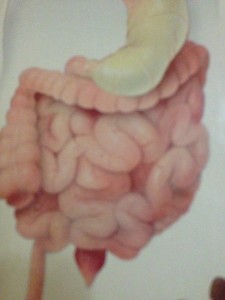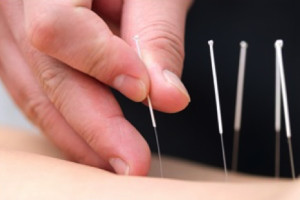Acupuncture Benefits Insurance Coverage
[Editor’s Note: While Positivity is the Usual Tone for this blog, this article is addressing a more serious trend and so is not upbeat]
Typical Medical Insurance Policy restrictions regarding Acupuncture Benefit and Reimbursement
You are all excited that you found out your insurance plan has acupuncture coverage. You think, “wow, it says I am entitled to 12 visits a year. Or 20 visits a year.” And you are thinking “I am entitled to getting each and every one of them and it is the doctor’s duty to do that for me.”
You are also perhaps feeling that the providers on the list are super happy that they get to work with you because you have insurance.
Well, providers are usually happy to be able to help you with their skills and art. That is for sure.
But in many cases, for the provider, the insurance part of it is not the warm and fuzzy feeling you have.
Why would that be? Please continue reading to the end to better understand why.
When you are not paying their usual and customary fees, in other words, if you are not paying full cash rate out of pocket, there are some things you should seriously consider to make the professional relationship work.
 The elephant in the room, your insurance plan, will always have either a good or bad effect. So it is incumbent upon you to understand the system that is the intermediary in this business transaction.
The elephant in the room, your insurance plan, will always have either a good or bad effect. So it is incumbent upon you to understand the system that is the intermediary in this business transaction.
Think about it. You go in to buy groceries. You pick up what you want. You go to the cashier. You pay out of pocket and you get the groceries. Did the store have to bill a third party to get paid?
Or you go to a financial planner for advice. You go in, you pay in cash, check, credit card, etc., you sit down and talk. You get the advice. You pay then and the financial planner gets paid then. No insurance involved as a middle man.
Let’s say you work at a coffee place. You are a barista. You get paid hourly or as a salary. People come in, order, pay (maybe sometimes with a discount card or coupon), you make what they want, they leave with what they bought. No insurance involved in the middle of that transaction. And you don’t have to bill some intermediary, like and insurance company, to get your pay check.
But that isn’t the way it is for the solo or group medical professional who has agreed to help patients by accepting their medical insurance. It is a totally different situation. You should understand it, especially if you want a good relationship with your provider and if you are thinking of going into that profession as well.
<h2>Acupuncture Benefits Insurance Coverage Basics</h2>
You have a contract (medical insurance) that says the insurance company will pay for some of your treatments in particular situations. This is called a “benefit.” “Benefits” are always limited in scope.
Eligibility means that you can access your plan because you (or someone else) paid your policy premium, so the medical insurance contract is in effect.
You have asked your possible provider to accept insurance payments. Typically that means that you want the provider to be satisfied with the amount that you pay with your copay and the part that the insurance company pays in addition.
So the provider (or paid staff) has to spend time and money to find out two things first. Your eligibility. And if you are eligible, do you have the (examination, evaluation, treatment) benefit?
Now, even if you are eligible and have, say, acupuncture, benefits, that doesn’t mean that your condition is one that the insurance plan agrees can be helped or treated with acupuncture.
This is an area of confusion for most patients.
Once again, just because you have the benefit it doesn’t guarantee that the provider will be paid. It doesn’t mean that the benefit applies to your condition. ALL INSURANCE PLANS specify what types of conditions they think might be impacted by acupuncture, herbs, shiatsu, massage, cupping etc.
MOST plans restrict “relevancy” to certain musculoskeletal problems, chroinic pain, nausea with pregnancy, and perhaps a few other diagnostic categories.
When the provider treats you, he has to provide diagnostic codes on the bill. He has to provide procedure codes. These two together relate to whether the benefit will be paid or not. If the insurance plan decides that they don’t want to pay for a particular benefit because they don’t like that diagnostic code, the provider will not be paid by the insurance company.
And don’t ask the provider to lie about the diagnosis just so you don’t have to pay. That is jeopardizing the provider’s license.
The provider if under contract, might then be able to send you the bill because they can bill you for anything the insurance plan won’t pay for. Other times, the insurance plan will tell the provider “tough luck. We won’t pay you and you can’t bill the patient.”
How fair is that? Not fair at all, I would propose.
Especially, when the time and cost of dealing with insurance plans is so severe for providers.
1. They have to spend time verifying eligibility and benefits. That could take as much as 1 hour or more. And then there still is no guarantee that the information will be correct.
2. They have to spend time making appointments, corresponding with the patients, actually examining and treating the patients, collecting co-payments, and then billing the insurance company for the balance.
3. Automation hasn’t really made much of a difference in this time issue, especially when the insurance company denies payment.
4. Knowing how to deal with the insurance system itself is a MAJOR expenditure of time and money. The insurance companies don’t ever pay providers for this time required to learn the system and keep up on all of the alerts and newsletters related to changes in the system and contracts.
5. On top of it all, insurance companies, with a few exceptions, have slashed reimbursement rates to participating providers. In most cases it is a 50 -90% reduction in their fee schedule.
6. And then there is the paperwork requirements imposed. Of course, again, no compensation for any of that given to the provider.
How are Acuncturists Paid: Independent providers aren’t given a salary. They aren’t provided an hourly wage. They have overhead and business expenses that they have to pay before they can take payment for their own expertise and work out of the small amount of money the insurance company gives them for their professional expertise.
It is likely that your insurance doesn’t even cover the cost of overhead if your doctor bills the insurance company directly. Some insurances do, most don’t.
Please keep this in mind when you call and ask a provider to make an appointment with you when you have a PPO plan. If the tables were turned, is it you who is doing the favor or the provider doing you the favor?
Granted, there are a few insurance plans that are not stealing from the providers. But there are many more plans that claim that they pay for the treatment, but don’t. In fact, often the patient pays way more in a copay than the insurance company itself pays.
And YOUR plan might be one of those. Hopefully, not. But if it is, extra consideration for your provider might just be just what the doctor ordered.




 One condition that has come to the forefront in the last few decades is HIV. Being HIV positive means focusing on your health in a whole new way. Caring for your body’s needs and your emotional well being is more important than ever, and is the key to living well with this disease.
One condition that has come to the forefront in the last few decades is HIV. Being HIV positive means focusing on your health in a whole new way. Caring for your body’s needs and your emotional well being is more important than ever, and is the key to living well with this disease.